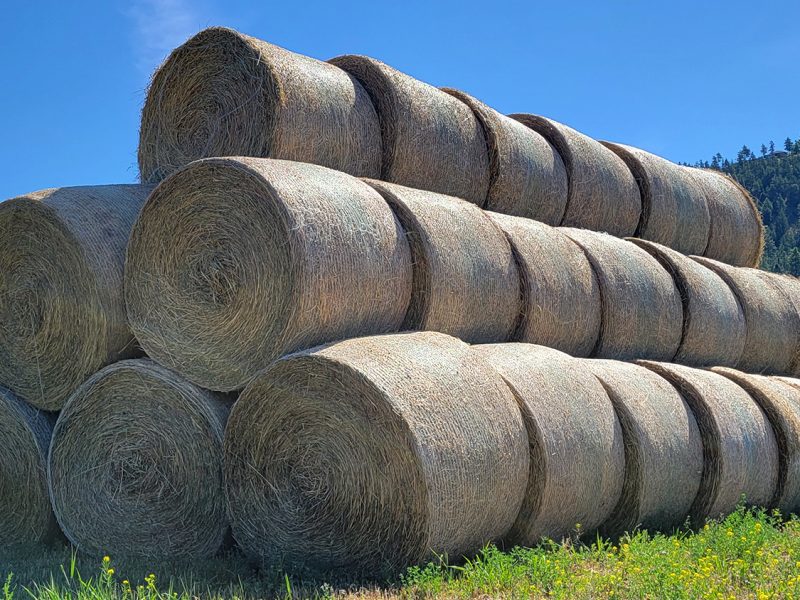The outlook for feed is good this season, a year after the BC Cattlemen’s Association launched its Access to Feed program with provincial support.
BC Cattlemen’s Association general manager Kevin Boon says BC is close to an average hay crop this year.
“We are seeing [more] consistent crops throughout the province,” says BC Cattlemen’s Association general manager Kevin Boon. “The Peace is probably again one of the hardest hit, if not the hardest hit for hay, but they are getting some crops off and it’s coming in.”
The big production areas, including the Nechako, Skeena and Highway 16 corridor typically export hay but did not have any to sell last year.
Whether or not this year’s average season delivers a surplus to help replenish hay stocks will depend on whether producers get a third cut or if the province shuts down irrigators like it did last year.
“It’s that third cut that is not taken yet that is hanging in the balance for irrigated land,” Boon says.
This year, the first and only cut in dryland areas had average or above-average yields and Boon expects producers in those regions will have hay for sale.
However, few producers have been in contact with Access to Feed to offer excess hay.
“Until we start to see hay get cut, we’re not going to see anything that we can match people up with and then after even at that, [it will be] the second and third cuts before they start understanding whether they’re going to have excess out there,” Boon explains.
Producers looking to sell or buy hay can go to BCCA’s website to get an idea of the inventory in their regions. Then, a coordinator will match producers without feed with a supplier.
The Access to Feed program, led by the BC Ministry of Agriculture and Food and BCCA, launched July 25, 2023. BCCA worked with the BC Grain Producers, BC Dairy Association, BC Forage Council and BC Horse Council to search out feed domestically and internationally.
The province provided $150,000 to BCCA to support the program last year but just $35,000 was required.
As a result, $50,000 was allocated to the program this year, with an additional $300,000 allocated to Livestock Drought Management Workshops.


 Islands Trust turns 50
Islands Trust turns 50